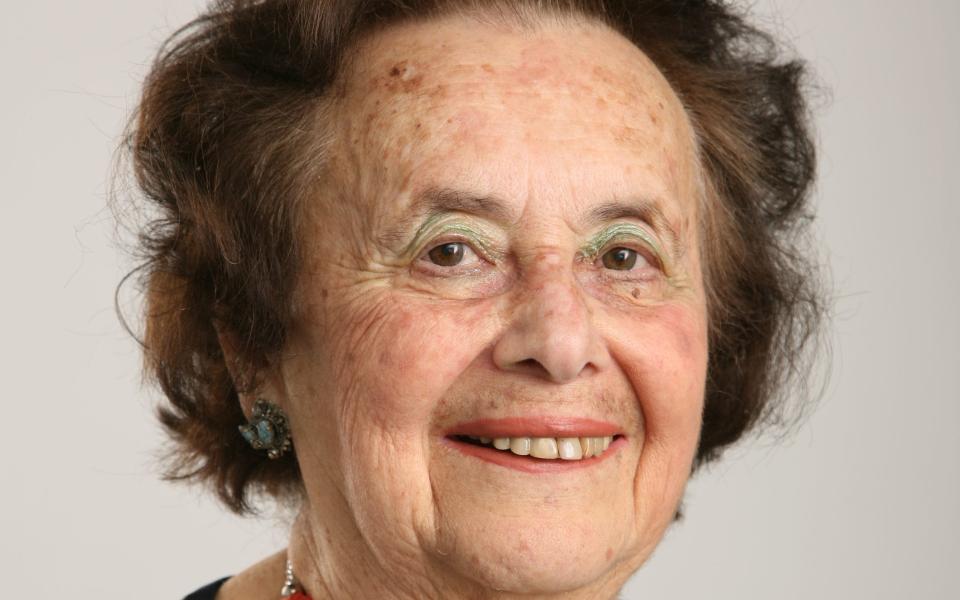They told us 'that's not a factory, they're burning your families' - survivors speak on Holocaust Memorial Day

Lily Ebert was in her teens when the Nazis invaded Hungary. Until then she’d enjoyed what she describes as “a very nice life”, growing up as one of six children in a middle class Jewish family in Bonyhád. But the sudden removal of their liberties was the prelude to an even greater horror.
“The first thing was we had to wear yellow stars,” she told The Telegraph at Monday’s Holocaust Memorial Day event in London, attended by the Duke and Duchess of Cambridge, Prime Minister Boris Johnson and dozens of survivors. “Then we had to give up our belongings. Anyone who had any valuables, we had to give them up.”
During childhood, her mother had gifted her a small gold pendant. Knowing its importance to Lily, her brother concealed this item in the heel of their mother’s shoe when the Nazis confiscated Jewish property.
In July 1944, when Lily was 14, she and her family were deported to Auschwitz in a cattle train, a nightmarish journey whose details she clearly recalls.
“In one cabin they put about 70 or 80 people,” she said. “They put in two buckets, one with water, one for human waste. We could not move. Quite a few people died, especially the babies and old people.”
The journey lasted five days, during which time the doors were periodically opened and the dead removed. “We were already half dead when we arrived [at the camp],” said Lily. “It was a place you cannot explain, it doesn’t belong to this world.”
Her mother, brother and sister were separated from her and she never saw them again. She was led away for a shower and to have her head shaved.

“We came out, saw from a chimney fire coming out and [smelled] this terrible smell,” she said. “We asked people who were already there what sort of factory it was and they told us, ‘that is not a factory, they are burning your families.’”
Lily had swapped shoes with her mother on the way, and still hidden in one heel was her pendant. Each day she was given a small ration of bread and hid the jewellery inside it during her four months at Auschwitz. She was then transferred to a factory near Leipzig, liberated in 1945.
Now 90, she’s a proud great-grandmother. Her pendant still hangs from her neck.
Renee Salt, 90, was meanwhile among the survivors who returned to the Nazi death camp to mark 75 years since its liberation.
The grandmother-of-five, who had just turned 15 when she arrived at the camp, regularly speaks about her experiences to schools, universities and community groups.
In 1944 she travelled by train to the camp from the Lodz ghetto, having been promised a better life there, but when she arrived guards told her: "This is the place where people are sent straight to the gas chambers."
Mrs Salt and her mother spent a few weeks at Auschwitz, before being sent to work at Hamburg docks. They were later sent to the Bergen Belsen concentration camp, where her mother died 12 days after it was liberated.
While at Auschwitz, Mrs Salt said she stayed in a hut with about 500 women. "We had to sit against the wall, packed like sardines in these positions,” she recalled.
"We were not allowed to speak to one another. The boss of the hut would walk up and down hitting us over the heads whenever she wanted to."
Some 10,000 Holocaust Memorial Day activities took place across Britain to mark the anniversary today. The UK's main event at Central Hall in Westminster included the lighting of 75 candles.

 Yahoo News
Yahoo News 